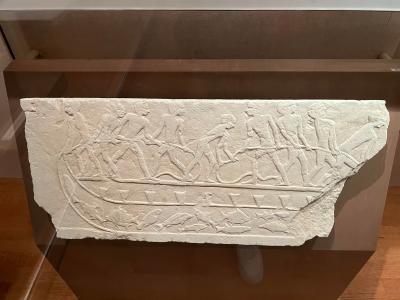“Now, however, these kings and counts of Lower Egypt who came to behold the beauty of His Majesty, their legs 150 were like the legs of women. They could not enter into the palace since they were uncircumcised and eaters of fish - such is an abomination of the palace. However, king Namlot entered into the palace since he was pure and did not eat fish. Three stood in their positions while one entered the palace.”
From an excerpt of the Victory Stele of Piye, the first Kushite conqueror of Egypt. What’s interesting is that Somalis also had an aversion of fish. Could have been one of the cultural practices brought by our Cushitic ancestors.
From an excerpt of the Victory Stele of Piye, the first Kushite conqueror of Egypt. What’s interesting is that Somalis also had an aversion of fish. Could have been one of the cultural practices brought by our Cushitic ancestors.



